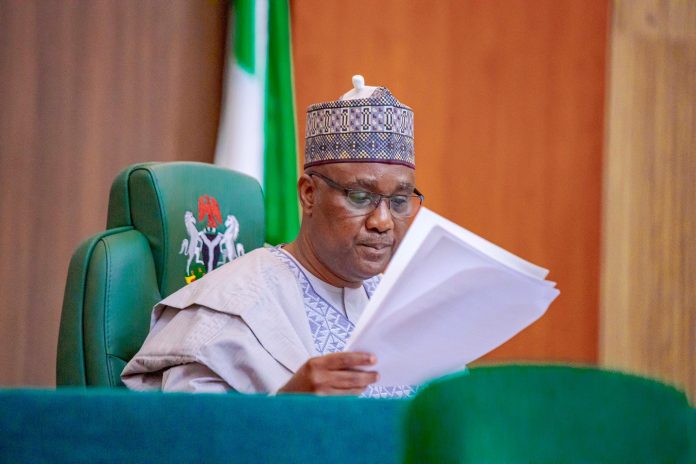The Speaker of the House of Representatives, Rt. Hon. Abbas Tajudeen, emphasizes the need for fair and transparent tax policies in Nigeria to ensure individuals and businesses are not overburdened. Abbas makes this statement during The People’s House Interactive Session on Tax Reform Bills, held in Abuja on Monday.
The event gathers key stakeholders, including the Chairman of the Presidential Fiscal Policy and Tax Reforms Committee, Taiwo Oyedele; the Chairman of the Federal Inland Revenue Service (FIRS), Zach Adedeji; and the Director-General of the Budget Office, Tanimu Yakubu, among others.
Tax Reform Bills Under Scrutiny
Speaker Abbas assures Nigerians that the House of Representatives is thoroughly reviewing the Tax Reform Bills submitted by the Federal Government, prioritizing the interests of the people. While acknowledging the debates surrounding the bills, he describes them as a healthy part of the democratic process.
According to Abbas, the proposed reforms aim to diversify the nation’s revenue base, promote equity, and create an environment conducive to investment and innovation. However, he stresses that lawmakers are carefully examining the bills to ensure they align with the Constitution and address public concerns.
“Taxes must be fair, transparent, and justifiable, balancing the need for public revenue with the burden they impose on individuals and businesses,” Abbas states.
He adds that the session provides an opportunity to identify areas needing clarification or amendment to ensure the reforms are compatible with existing laws and protect the interests of all Nigerians.
Nigeria’s Tax Challenges
Abbas highlights Nigeria’s low tax-to-GDP ratio of 6%, far below the global average and the World Bank’s recommended minimum of 15%. He notes that improving tax revenue is crucial for reducing reliance on debt financing and achieving fiscal stability.
“Taxes are the foundation of public revenue in modern societies. We must address this issue to secure a stable future for Nigeria,” the Speaker remarks.
Taiwo Oyedele, Chairman of the Presidential Fiscal Policy and Tax Reforms Committee, reassures stakeholders, stating that the proposed reforms strengthen Nigeria’s economic framework and provide more resources for states and local governments.
Ongoing Legislative Process
The National Economic Council (NEC), chaired by Vice President Kashim Shettima, recently recommends the withdrawal of the Tax Reform Bills to allow for broader stakeholder consultations. However, President Bola Ahmed Tinubu insists the legislative process should proceed, with stakeholder input incorporated during public hearings.
President Tinubu commends NEC members, including state governors, for their contributions and emphasizes the importance of legislative procedures in addressing concerns. The tax reforms, introduced under the Renewed Hope Administration, aim to broaden Nigeria’s revenue base, stabilize the economy, and reduce dependence on specific sectors.
Key Stakeholder Concerns
Governors of Northern states and other regional stakeholders express reservations about certain aspects of the proposed reforms, particularly regarding the Value Added Tax (VAT) distribution model. The Vice President notes that these reforms present an opportunity to address such concerns while fostering alignment on broader economic goals.
Conclusion
As debates around the Tax Reform Bills continue, Speaker Abbas reiterates the House’s commitment to a transparent and thorough review process that serves the best interests of Nigerians. He assures the public that the reforms promote equity, encourage investment, and ensure sustainable development.
The legislative process remains critical in shaping a fair and efficient tax system that supports Nigeria’s growth and stability.













